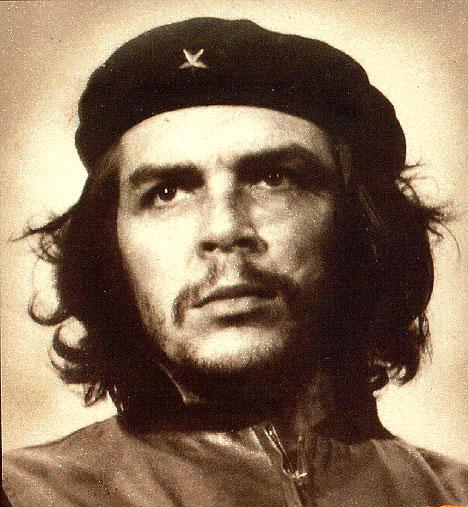Bolivia to issue facsimile edition of Che's journals
 Buenos Aires/La Paz - The Bolivian government plans to issue a special edition of the journals of revolutionary leader Che Guevara, with forewords written by Cuba's recently-retired president Fidel Castro and Bolivia's first Indio President Evo Morales.
Buenos Aires/La Paz - The Bolivian government plans to issue a special edition of the journals of revolutionary leader Che Guevara, with forewords written by Cuba's recently-retired president Fidel Castro and Bolivia's first Indio President Evo Morales.
Bolivia's vice minister for culture, Pablo Groux, said Tuesday in La Paz that 2,000 copies would be printed containing exact copies of Che's journals, with a release target of October.
The documents contain all of Che's writings from 1967, the year of his death, when he was in Bolivia, trying in vain to ignite a revolutionary movement to bring the backward country into the present.
In October 1967, Che was captured by Bolivian soldiers and executed nearly on the spot, without trial. The journals fell into the hands of the Bolivian military.
Plural Verlag in La Paz is to publish the work, with financial support from the cultural arm of the central bank and from the foreign ministry.
The journals have travelled a long odyssey, according to a report in the newspaper "La Razon." In 1968, a microfilm of the pages landed in Cuba, where they were published along with prior journals of Che Guevara.
Later, the former Bolivian dictator Luis García Mesa offered the originals at auction in London. The Bolivian government however challenged the sale and retrieved the journals to La Paz in 1986.
They remained in possession of the government in a secure locker of the central bank until current times.
Despite his execution at age 39 more than four decades ago, Guevara continues to exercise a hold on the popular imagination for his forceful personality and involvement in Latin American revolutions during the second half of the 20th Century.
Guevara was a key figure in Castro's Cuban revolution in the 1950s who was convinced that revolution was the appropriate method to fight social injustice and the US brand of capitalism.
He was a symbol of hope that Latin America would carry out fundamental change along its own lines and a red flag to conservative counter-revolutionary dictatorships that plagued Latin American history during that period.
His path from an ailing childhood to imprinting his own ideas on Marxist ideology - called Guevarism - made him a rallying figure for socialist movements around the world. (dpa)